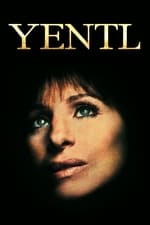Personal Info
Known For Writing
Known Credits 7
Gender Male
Birthday July 14, 1904
Day of Death July 24, 1991 (87 years old)
Place of Birth Leoncin, Poland, Russian Empire [now Leoncin, Mazowieckie, Poland]
Also Known As
- -
Content Score
100
Yes! Looking good!
Login to report an issue
Biography
Isaac Bashevis Singer (Yiddish: יצחק באַשעװיס זינגער; November 11, 1903 – July 24, 1991) was a Polish-born Jewish-American novelist, short-story writer, memoirist, essayist, and translator. Some of his works were adapted for the theater. He wrote and published first in Yiddish and later translated his own works into English with the help of editors and collaborators. He was awarded the Nobel Prize for Literature in 1978. A leading figure in the Yiddish literary movement, he was awarded two U.S. National Book Awards, one in Children's Literature for his memoir A Day of Pleasure: Stories of a Boy Growing Up in Warsaw (1970) and one in Fiction for his collection A Crown of Feathers and Other Stories (1974).
Isaac Bashevis Singer was born in 1903 to a Jewish family in Leoncin village near Warsaw, Poland. The Polish form of his birth name was Icek Hersz Zynger. The exact date of his birth is uncertain, but most sources say it was probably November 11, a date similar to the one that Singer gave to his official biographer Paul Kresh, his secretary Dvorah Telushkin, and Rabbi William Berkowitz. The year 1903 is consistent with the historical events that his brother refers to in their childhood memoirs, including the death of Theodor Herzl. The often-quoted birth date, July 14, 1904 was made up by the author in his youth, possibly to make himself younger to avoid the draft.
His father was a Hasidic rabbi and his mother, Bathsheba, was the daughter of the rabbi of Biłgoraj. Singer later used her first name in an initial literary pseudonym, Izaak Baszewis, which he later expanded. Both his older siblings, sister Esther Kreitman (1891–1954) and brother Israel Joshua Singer (1893–1944), became writers as well. Esther was the first of the family to write stories.
The family moved to the court of the Rabbi of Radzymin in 1907, where his father became head of the Yeshiva. After the Yeshiva building burned down in 1908, the family moved to Warsaw, a flat at Krochmalna Street 10. In the spring of 1914, the Singers moved to No. 12.
The street where Singer grew up was located in the impoverished, Yiddish-speaking Jewish quarter of Warsaw. There his father served as a rabbi, and was called on to be a judge, arbitrator, religious authority and spiritual leader in the Jewish community. The unique atmosphere of pre-war Krochmalna Street can be found both in the collection of Varshavsky-stories, which tell stories from Singer's childhood, as well as in those novels and stories which take place in pre-war Warsaw. ...
Source: Article "Isaac Bashevis Singer" from Wikipedia in English, licensed under CC-BY-SA 3.0.
Isaac Bashevis Singer (Yiddish: יצחק באַשעװיס זינגער; November 11, 1903 – July 24, 1991) was a Polish-born Jewish-American novelist, short-story writer, memoirist, essayist, and translator. Some of his works were adapted for the theater. He wrote and published first in Yiddish and later translated his own works into English with the help of editors and collaborators. He was awarded the Nobel Prize for Literature in 1978. A leading figure in the Yiddish literary movement, he was awarded two U.S. National Book Awards, one in Children's Literature for his memoir A Day of Pleasure: Stories of a Boy Growing Up in Warsaw (1970) and one in Fiction for his collection A Crown of Feathers and Other Stories (1974).
Isaac Bashevis Singer was born in 1903 to a Jewish family in Leoncin village near Warsaw, Poland. The Polish form of his birth name was Icek Hersz Zynger. The exact date of his birth is uncertain, but most sources say it was probably November 11, a date similar to the one that Singer gave to his official biographer Paul Kresh, his secretary Dvorah Telushkin, and Rabbi William Berkowitz. The year 1903 is consistent with the historical events that his brother refers to in their childhood memoirs, including the death of Theodor Herzl. The often-quoted birth date, July 14, 1904 was made up by the author in his youth, possibly to make himself younger to avoid the draft.
His father was a Hasidic rabbi and his mother, Bathsheba, was the daughter of the rabbi of Biłgoraj. Singer later used her first name in an initial literary pseudonym, Izaak Baszewis, which he later expanded. Both his older siblings, sister Esther Kreitman (1891–1954) and brother Israel Joshua Singer (1893–1944), became writers as well. Esther was the first of the family to write stories.
The family moved to the court of the Rabbi of Radzymin in 1907, where his father became head of the Yeshiva. After the Yeshiva building burned down in 1908, the family moved to Warsaw, a flat at Krochmalna Street 10. In the spring of 1914, the Singers moved to No. 12.
The street where Singer grew up was located in the impoverished, Yiddish-speaking Jewish quarter of Warsaw. There his father served as a rabbi, and was called on to be a judge, arbitrator, religious authority and spiritual leader in the Jewish community. The unique atmosphere of pre-war Krochmalna Street can be found both in the collection of Varshavsky-stories, which tell stories from Singer's childhood, as well as in those novels and stories which take place in pre-war Warsaw. ...
Source: Article "Isaac Bashevis Singer" from Wikipedia in English, licensed under CC-BY-SA 3.0.
Writing
|
|||
|
|||
|
|||
|
|||
|
Acting
|
|||
|
|||
|




